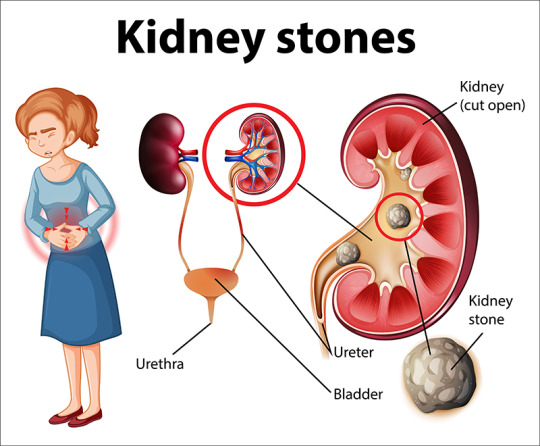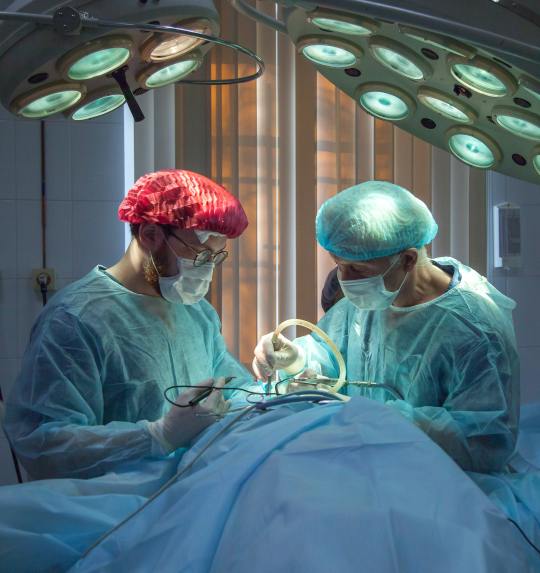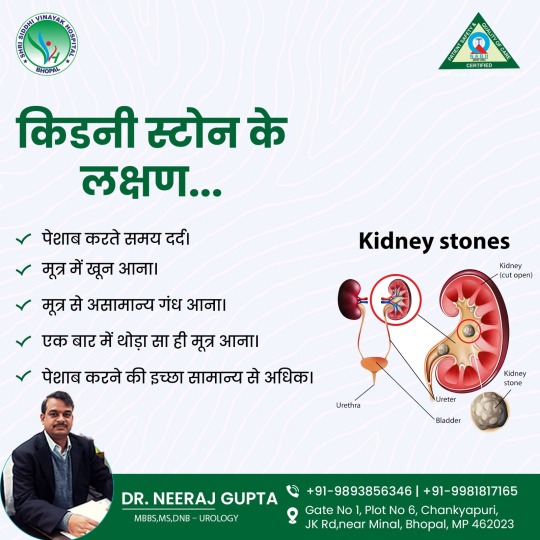#kidney stone specialist in bhopal
Text
Kidney Stone Treatment in Bhopal - Dr Neeraj Gupta

Are you suffering from kidney stones Meet Dr. Neeraj Gupta. kidney stone treatment in Bhopal. options may include lifestyle changes, medication to relieve symptoms, dietary adjustments to prevent future stones, and in some cases, procedures like shock wave lithotripsy, ureteroscopy, or surgery to remove or break up larger stones.
#bets kidney stone surgeon in bhopal#kidney stone diagnosis in bhopal#kidney stone specialist in bhopal
0 notes
Text
Urinary Tract Infection | Best Urologist Bhopal
Introduction
Urinary tract infection (UTI) is a type of infection that can occur in any part of the urinary system. This includes the kidneys, ureters, bladder, and urethra. UTI is more common in women than men, and it’s estimated that about 50% of women will experience at least one UTI during their lifetime.
There are many different factors that can contribute to a UTI, but the most common cause is bacteria that enters the urinary tract through the urethra and begins to multiply. This can happen when there is poor hygiene or when sexual intercourse introduces new bacteria into the urinary system. Other factors that may increase your risk of UTI include pregnancy, diabetes, and a history of UTIs.

If you think you might have a UTI, it’s important to see a best urologist Bhopal so that you can get treated before the infection spreads to your kidneys. Treatment for a UTI typically involves antibiotics, and most people will start feeling better within a few days of beginning treatment.
What is a urinary tract infection?
A urinary tract infection (UTI) is an infection in any part of your urinary system — your kidneys, ureters, bladder, and urethra. Most infections involve the lower urinary tract — the bladder and the urethra. Women are at greater risk than men for developing a UTI because of their anatomy.
The main symptom of a UTI is a strong, persistent urge to urinate. You may also have cloudy urine, strong-smelling urine, and/or pain or burning with urination. If the infection spreads to your kidneys, you may experience back pain, nausea, vomiting, or fever.
UTIs are usually treated with antibiotics. It’s important to finish all of the medication as prescribed even if your symptoms go away. If left untreated, a UTI can lead to serious kidney damage.
Causes of urinary tract infection
There are a number of things that can cause urinary tract infections, but the most common cause is bacteria. Bacteria can enter the bladder through the urethra and begin to multiply. This can happen when the area around the urethra is not cleaned properly, or if there is already an infection in another part of the body that spreads to the bladder. Other causes of urinary tract infections include:
-Dehydration: When your body doesn’t have enough fluids, your urine becomes more concentrated and provides a good environment for bacteria to grow.
-Certain medications: Some medications, such as diuretics, can increase your risk of developing a urinary tract infection.
-Kidney stones: Stones in the kidney can block the flow of urine and trap bacteria in the urinary tract.
-Pregnancy: The growing uterus puts pressure on the bladder, which can make it difficult to fully empty your bladder and increases your risk of developing a urinary tract infection.
Symptoms of urinary tract infection
A urinary tract infection (UTI) is an infection that can occur anywhere along the urinary tract, which includes the kidneys, ureters, bladder, and urethra. While UTIs are more common in women than men, anyone can develop a UTI.
The most common symptom of a UTI is a burning sensation when urinating. Other symptoms may include:
- Frequent urge to urinate
- Pain or pressure in the lower abdomen
- Blood in the urine
- cloudy or foul-smelling urine
- pelvic pain (in women)
Treatment of urinary tract infection
Urinary tract infection (UTI) is a common infection that can affect women of all ages. The symptoms of a UTI can vary from person to person, but often include a burning sensation when urinating, the need to urinate frequently, and cloudy or bloody urine.
If you think you might have a UTI, it's important to see your nephrologist in Bhopal so that you can get started on the right treatment. In most cases, UTIs can be treated with antibiotics. However, some women may require more aggressive treatment, such as hospitalization and intravenous antibiotics.
If you have recurrent UTIs, your healthcare provider may recommend prophylactic antibiotics to help prevent future infections. Additionally, there are certain lifestyle changes that can help reduce your risk of developing a UTI, such as drinking plenty of fluids and urinating promptly after sexual intercourse.
Prevention of urinary tract infection
Urinary tract infections (UTIs) are preventable. There are many things you can do to reduce your risk of getting a UTI, including:
-Drinking plenty of fluids. Drinking water helps flush out bacteria that may cause UTIs.
-Urinating frequently. urinating helps expel bacteria from the urinary tract.
-Wiping from front to back after using the restroom. This helps prevent bacteria from the anus from spreading to the urethra.
-Avoiding diaphragms and spermicide for birth control. These can increase the risk of UTIs.
-Choosing shower over baths. Baths can increase the risk of UTIs because they can introduce new bacteria into the urinary tract.
Conclusion
Urinary tract infections are a common problem for women, but there are ways to prevent them. The most important thing is to drink plenty of fluids and urinate frequently to flush out the bacteria that can cause an infection. You should also avoid using harsh soaps or douching, which can irritate the delicate tissues in the urinary tract. If you do get an infection, it's important to see a best kidney doctor Bhopal right away so that it can be treated before it causes serious problems.
#Kidney Doctor In Bhopal#Kidney Stone Surgeon Bhopal#Kidney Transplant Bhopal#Kidney Stone Surgeon Near Me Bhopal#Kidney Specialist Bhopal#Nephrologist In Bhopal#Best Urologist Bhopal
0 notes
Text
Kidney Treatment Hospital Bhopal
Chronic kidney failure, also known as chronic kidney disease, is the loss of kidney functioning. The primary purpose of the kidney is to filter excess fluids and waste from your blood via urine. In the early stage of kidney disease, a dangerous level of waste, and the level of fluid gets build up.
The symptoms and signs of kidney disease make the functioning of the kidney ineffective. Hence, choosing a treatment for kidney failure enables you to control the cause of it.
Symptoms And Signs Of Kidney Disease

Symptoms and signs of chronic kidney disease develop over a certain period of time, and kidney damages gradually. The symptoms include:
Vomiting
Nausea
Fatigue and weakness
Sleep problems
Loss of appetite
Decreased mental sharpness
Swelling of ankles and feet
Persistent itching
Shortness of breath
High blood pressure
Muscle cramps or twitches
These symptoms and signs are often non-specific, which means they can even be caused due to illnesses. Since kidneys are flexible and able to cooperation for lost functioning, the symptoms might not appear.
To know more visit our website: https://parulkarhospital.com/2020/04/03/best-kidney-treatment-hospital-in-bhopal
#best kidney specialist in bhopal#kidney stone specialist in bhopal#Best Kidney Stone Hospital In Bhopal#best kidney stone Treatment in bhopal
0 notes
Text
Best Kidney Specialist Doctor In Bhopal
Kidney stones are also known as renal calculi. They are solid masses in the form of crystals. It usually roots from your kidney. It can develop anywhere in your urinary tract, especially in ureters, bladder, urethra, and kidneys. If you have a kidney stone problem, then you must visit the best kidney specialist doctor in Bhopal for the best results.

Since kidney stones are the most painful and common medical condition, it may be due to various reasons. Let’s find out those reasons here.
https://parulkarhospital.com/2020/04/10/best-kidney-specialist-doctor-in-bhopal
#best kidney specialist in bhopal#best kidney doctor in bhopal#Best Kidney Stone Hospital In Bhopal#best kidney stone Treatment in bhopal
1 note
·
View note
Text
Renal Stone - How Advantages Is Homeopathic Treatment For Curing It? - Best Homeopathic Clinic In Bhopal
The hard deposits of salts or any other minerals formed into the kidney or the urinary tract are usually called kidney stones or renal stones. These stones are too called renal lithiasis or nephrolithiasis. We know the kidney filters body fluids and throw out all unwanted minerals and salts from the body in the form of urine and when salt or other minerals gets build up in the urine and stick together and turns into hard masses that vary differently in terms of size and shape.
Firstly they take their place in the kidney and moves to ureters. Mostly when stones are small, they pass out in urine without causing any soreness. In case the stone is big, it gets stuck in ureters and blocks the urine run. Therefore to get rid of its best renal stone / pathri(Hindi) treatment in Bhopal is there that can be greatly helpful.
Homeopathy treatment for renal stones-
Homeopathy treatment for curing kidney stones has natural remedies. Homeopathy remedies work very well in managing pain and discomfort with dissolving stones and get rid of them from urine. The homeopathy remedies for renal stones provided by the best renal stone / pathri(Hindi) treatment in Bhopal specialist to break down the big-sized stones and throw out from the body without using any painful invasive process would always be an ideal solution. Undoubtedly, homeopathy treatments for renal stones are safe, effective, natural, and free of any adverse effects.
Constitutional homeopathy renal stones treatment-
The specialist curing renal stones considers constitutional homeopathy treatment that is natural, safe, and false effects free and prescribe based upon the concept and symptoms of individualism. The constitutional treatment for treating kidney stones not only manages pain and discomforts but also dissolves renal stones and expels them into the urine. In numbers, the patients have been benefitted from it and have eliminated the reoccurrence successfully.
Symptoms and causes of renal stones-
Symptoms-
Foul-smelling urine
Blood in the urine
pain in the lower abdomen
Vomiting
Pain on urination
Chills
Fever
Bad pain at the back and on the side
Nausea
Causes-
Family history
Lack of water in the body
Dry & hot climate
Few medications
Diabetes
Obesity
Diet rich in salt
Benefits of homeopathic treatment for kidney stones-
1- Homeopathic treatment for curing renal stones offers a comprehensive approach and gentlest medication along with managing the condition.
2- Homeopathic treatment regularizes the function of the kidney and assists in flushing waste out appropriately.
3- They assist in maintaining an adequate balance of salt, water, minerals, and all other substances that are found in urine.
4- Homeopathy strengthens immune systems that help to fight naturally and stop the reoccurrence of the same.
5- Addition to removing stones, homeopathic medications assist in treating the root cause of this disorder.
The end-
So that’s about the Best renal stone / pathri(Hindi) treatment. You can go for those and you will surely experience amazing benefits from it. You can approach to Dr. Sunil Patidar and get better consultation from him. In fact his homeopathy treatments are greatly effectual that leaves patients greatly happier even though it takes bit time but is result oriented.
0 notes
Text
Parulkarhospital
PARULKAR HOSPITAL is a renowned medical group in Bhopal that’s established in 1988 parulkar hospital has been providing effective healthcare solutions for more than 30 years to improve the quality of life and health of patients. It is one of the oldest and best healthcare service providers in Bhopal that’s professionally managed and organized by top-notch urologists,kidney stone specialist,multiple sclerosis test & Cancer hospital bhopal.
Parulkarhospital was originally published on Business directory and remarkable travel blog!
0 notes
Text
Pain In Urination - Know The Reasons Behind It!
On the off chance that you are encountering torment in pee alongside a consuming sensation, a wellbeing condition known as dysuria is demonstrated. This condition is generally normal in ladies and men alike. Be that as it may, more seasoned men are more inclined to confront this issue. Torment amid pee may happen due to different reasons.
Words By: Dr. Ranjit Chaudhary is an experienced Urologists in Jawahar Chowk , Bhopal. He has been a successful Urologist for the last 18 years.
The most well-known causes are as per the following:
Diseases
1. Urinary tract diseases (UTIs) are a typical reason for excruciating pee. Contaminations may happen in any piece of your urinary tract, for example, in the kidneys, bladder, and the ureters. These contaminations happen because of microorganisms, which gets into the urinary tract by means of the urethra. There are a few variables, which increment your odds of being influenced by UTI. They incorporate diabetes, a broadened prostate, seniority, pregnancy, and kidney stones. UTI is implied by different side effects, for example, fever, wicked pees, flank torment, more grounded noticing pee, and an expanded desire for pee.
2. On occasion, difficult pee may likewise be related with vaginal diseases in ladies, similar to yeast contamination. Vaginal release and foul smell are shown on account of vaginal diseases.
3. Agonizing pee is additionally caused on account of certain sexually transmitted diseases (STIs, for example, gonorrhea, genital herpes and Chlamydia.
Aggravation and disturbance
There are a few issues, which can cause aggravation of your urinary tract and genital locale. This further outcomes in excruciating pee. Aggravation and disturbances additionally happen as a result of different factors, for example, urinary tract stones, vaginal changes related with menopause, certain physical exercises and the reactions of a few drugs, treatment systems and wellbeing supplements.
Counseling a specialist for agonizing pee
Your specialist will propose you to embrace certain research facility tests for the best possible conclusion of the reason for your agonizing pee. After this, an appropriate treatment strategy is looked for and embraced. Prior to this, a general physical examination is likewise done. Your specialist is probably going to put forth some essential inquiries with respect to your agonizing disturbance, how the condition declines, and is felt amid the beginning of pee. It is additionally likely for your specialist to think about whatever other manifestations, which you may experience, for example, fever, flank torment and vaginal release. You should inform your specialist regarding any progressions saw in your pee stream, for example, trouble in starting stream, an expanded desire to urinate, and spilling.
0 notes
Text
UROLOGY
UROLOGY, generally called genitourinary surgery, is the branch of solution that spotlights on surgical and therapeutic diseases of the male and female urinary-tract system and the male regenerative organs. Organs under the space of urology fuse the kidneys, adrenal organs, ureters, urinary bladder, urethra, and the male conceptive organs (balls, epididymis, vas deferens, central vesicles, prostate, and penis). The urinary and regenerative tracts are solidly associated, and disarranges of one consistently impact the other. Thusly a vital scope of the conditions administered in urology exists under the space of genitourinary issue. Urology combines the organization of restorative (i.e., non-surgical) conditions, for instance, urinary-tract defilements and liberal prostatic hyperplasia, with the organization of surgical conditions, for instance, bladder or prostate development, kidney stones, innate inconsistencies, frightful harm, and stress incontinence.
Urological procedures consolidate inconsequential prominent mechanical and laparoscopic surgery, laser-helped surgeries, and other degree guided frameworks. Urologists get getting ready in open and unimportantly prominent surgical strategies, using continuous ultrasound bearing, fiber-optic endoscopic equipment, and distinctive lasers in the treatment of various accommodating and hazardous conditions. Urology is immovably related to (and urologists routinely collaborate with the specialists of) oncology, nephrology, gynecology, andrology, pediatric surgery, colorectal surgery, gastroenterology, and endocrinology.
Urology is a champion among the most engaged and exceedingly searched for surgical strong points for specialists, with new urologists containing under 1.5% of United States restorative school graduates each year.
Multi speciality hospital :
S L Raheja Fortis Hospital
It has established a benchmark in healthcare and medical facilities in the neighborhood of Mahim & the western suburbs. Since its inception, the hospital has been equipped with Centers of Excellence in diverse medical fields such as Diabetes, Diabetic Foot Surgery, Oncology, Orthopedics (knee, hip replacement, arthroscopies, spine, foot & ankle), Cardiac Sciences, Neuro Sciences and Minimal Access Surgeries. It remains one of the pioneering institutions in the field of Diabetes, Oncology & Cardiac Care in the city.
S.L.Raheja (A Fortis Associate) Hospital, Mahim has one of the most effective ICU and Casualty care services. These are modeled on international care standards to provide round the clock critical care services to ensure better emergency response and efficient critical care for our patients. Our excellent operation theatres and cath labs are committed to providing immediate care and treatment to critically ill patients.
Urologists, Male Infertility Specialist in Bhopal. Book Doctor’s Appointment, Consult Online, View Doctor Fees, User Reviews, Address and Phone Numbers, Also Find More Urologists in Bhopal | Lybrate
Subdisciplines
As a helpful prepare that incorporates the care of various organs and physiological systems, urology can be isolated into a couple of subdisciplines. At various greater insightful concentrations and school specialist’s offices that surpass desires in tolerant care and clinical research, urologists routinely have some mastery in a particular sub prepare.
Endourology
Endourology is the branch of urology that game plans with the close control of the urinary tract. It has recently created to join all inconsequential prominent urologic surgical frameworks. Instead of open surgery, endourology is performed using little cameras and instruments installed into the urinary tract. Transurethral surgery has been the establishment of endourology. Most by far of the urinary tract can be come to through the urethra, enabling prostate surgery, surgery of tumors of the urothelium, stone surgery, and direct urethral and ureteral techniques. Starting late, the development of laparoscopy and mechanical innovation has moreover subdivided this branch of urology.
Laparoscopy
Laparoscopy is a rapidly propelling branch of urology and has supplanted some open surgical strategies. Robot-helped surgery of the prostate, kidney, and ureter has been expanding this field. Today, various prostatectomies in the United States are finished by implied mechanical help. This has made conflict, regardless, as mechanical innovation essentially augment the cost of surgery and the preferred standpoint for the patient could possibly be with respect to the extra cost. Also, current (2011) exhibit condition for mechanical equipment is an acknowledged syndication of one openly held enterprise which furthermore fills the cost-suitability talk.
Urologic oncology
Urologic oncology concerns the surgical treatment of hurtful genitourinary ailments, for instance, infection of the prostate, adrenal organs, bladder, kidneys, ureters, gonads, and penis, and what’s more the skin and subcutaneous tissue and muscle and belt of those zones (that particular subspecialty covers with dermatological oncology and related regions of oncology). The treatment of genitourinary danger is directed by either a urologist or an oncologist, dependent upon the treatment form (surgical or helpful). Most urologic oncologists in western countries use inconsequential meddlesome techniques (laparoscopy or endourology, computerized helped surgery) to administer urologic malignancies friendly to surgical organization.
Neurourology
Neurourology concerns tangible framework control of the genitourinary system, and of conditions causing unpredictable pee. Neurological ailments and messes, for instance, a stroke, various sclerosis, Parkinson’s disease, and spinal rope harm can annoy the lower urinary tract and result in conditions, for instance, urinary incontinence, detrusor overactivity, urinary upkeep, and detrusor sphincter dyssynergia. Urodynamic looks at accept a basic illustrative part in neurourology. Treatment for tangible framework issue consolidates clean sporadic self-catheterization of the bladder, anticholinergic prescriptions, imbuement of Botulinum harm into the bladder divider and advanced and less customarily used medicines, for instance, sacral neuromodulation. Less stamped neurological varieties from the standard can cause urological jumbles likewise — for example, oddities of the unmistakable tactile framework are thought by various researchers to expect a section in dissipates of intense or ceaseless pee (e.g. unbearable bladder issue generally called interstitial cystitis).
0 notes
Text
Why Senior Consultant Urologist, Dr. Santosh Agrawal Is One Of The Best Urologist In Bhopal
Dr. Santosh Agrawal is one of the best urologist Bhopal that can be trusted for all your urological needs. Dr. Santosh Agrawal is a distinguished Consultant Urologist and Head of Department and Chief Kidney Transplant Surgeon at Bansal Hospital Bhopal. He has performed more than 150 Kidney Transplants, over 1,000 Cysts, Bladder Cancer Screenings, Saline Scavenging Techniques for Radical Prostatectomy, Vocal Cord Surgery, Congenital Anomalies of the Urethra and Penile Surgery.
If you are looking for a reliable and experienced urologist in Bhopal, then you can book an appointment with Dr. Sanotsh Agrawal at his clinic or hospital.

Experience
As a senior consultant urologist, Dr. Santosh Agrawal has over 15 years of experience in the field of urology. He has worked at some of the best hospitals in Bhopal and has gained a vast amount of knowledge and experience in the field. He is an expert in treating various urological conditions such as urinary tract infections, kidney stones, prostate problems, male infertility, and erectile dysfunction. He has also gained extensive experience in performing surgeries such as prostatectomy, cystectomy, and ureteric stenting. Dr. Santosh Agrawal is highly skilled and knowledgeable in his field and is considered to be one of the best urologists in Bhopal.
Treatment given
As a senior consultant urologist, Dr. Santosh Agrawal is one of the best urologists in Bhopal. He has been providing his patients with the highest quality of care and treatment possible.
He has successfully treated many patients with various urological conditions such as kidney stones, urinary tract infections, prostate problems, and male infertility.
Dr. Agrawal’s unique approach to patient care ensures that each patient receives individualized attention and treatment. He takes the time to get to know his patients and their medical history so that he can provide them with the most effective care possible.
His compassionate nature makes him a great doctor to consult for any urological problem. If you are looking for the nephrologist in Bhopal, look no further than Dr. Santosh Agrawal.
#Kidney Doctor In Bhopal#Kidney Stone Surgeon Bhopal#Kidney Transplant Bhopal#Kidney Stone Surgeon Near Me Bhopal#Kidney Specialist Bhopal#Nephrologist In Bhopal#Best Urologist Bhopal
0 notes
Text
All About Prostate Surgery By Urologist In Bhopal
When it comes to prostate surgery, there are a lot of things that men don’t know. And that’s understandable, because it’s not a topic that is often talked about. But it’s important to be informed about all of your options and what to expect before making a decision about your treatment. In this blog post, we will explore what you need to know about prostate surgery. We will discuss the different types of surgery, the risks and side effects, and the recovery process. We will also provide some resources for further reading.
What is prostate surgery?
Prostate surgery is a common treatment for prostate cancer. The prostate is a small gland that makes semen and is located in front of the rectum. The most common type of prostate surgery is a radical prostatectomy, which involves removing the entire prostate gland and some of the tissue around it. This type of surgery usually requires a hospital stay of several days. Other types of prostate surgery include transurethral resection of the prostate (TURP) and laser ablation of the prostate (LAP).
What are the different types of prostate surgery?
There are four main types of prostate surgery:
1. Transurethral resection of the prostate (TURP): This is the most common type of prostate surgery. It involves removing part of the prostate through the urethra (the tube that carries urine out of the body). TURP is usually done as an outpatient procedure, which means you can go home the same day.
2. Open prostatectomy: This type of surgery involves making an incision in your lower abdomen and removing the prostate through this opening. Open prostatectomy can be done as either an open or laparoscopic procedure.
3. Radical prostectomy: This is the most extensive type of prostate surgery and involves removing the entire prostate, along with surrounding tissue and lymph nodes. Radical prostectomy can be done as either an open or laparoscopic procedure.
4. Transurethral microwave thermotherapy (TUMT): This is a newer, minimally invasive treatment option for men with small- to medium-sized prostates. TUMT uses microwaves to heat and destroy tissue in the prostate.
Who is a candidate for prostate surgery?
A man with an enlarged prostate gland may be a candidate for surgery to remove the prostate. The decision to have surgery is generally made after other treatments, such as medication and watchful waiting, have failed. Surgery is also an option for men who have cancer that has spread outside the prostate.

Robotic assisted laparoscopic radical prostatectomy (RALP) is the most common type of surgery used to remove the entire prostate. This procedure is less invasive than traditional open surgery and allows for a quicker recovery. During RALP, the surgeon makes several small incisions in the lower abdomen and inserts a thin tube with a camera attached (laparoscope) through one of these incisions. The surgeon then uses robotic arms to remove the prostate.
If you are considering surgery to remove your prostate, it is important to discuss all of your options with your best urologist Bhopal. You should also be aware of the potential risks and complications associated with any surgical procedure.
What are the risks and complications of prostate surgery?
There are a number of risks and complications associated with prostate surgery, which can include erectile dysfunction, urinary incontinence, and bowel problems. While these complications are typically not life-threatening, they can be very bothersome and have a significant impact on quality of life. In some cases, more serious complications such as infection or bleeding can occur. It is important to discuss all of the potential risks and complications with your doctor before undergoing surgery.
What are the benefits of prostate surgery?
When it comes to prostate surgery, there are a lot of things that you need to take into consideration. This includes the type of surgery that you want, the benefits of the surgery, and the risks associated with the surgery.
With any kind of surgery, there are always going to be some risks involved. However, the risks associated with prostate surgery are relatively low. The most common complications from this type of surgery are urinary incontinence and erectile dysfunction. These complications can usually be treated and are not permanent.
There are two main types of prostate surgery: radical prostatectomy and transurethral resection of the prostate (TURP). Radical prostatectomy is the more invasive of the two surgeries and involves removing the entire prostate gland. TURP is less invasive and only removes a portion of the gland. Both surgeries have their own set of risks and benefits that you will need to discuss with your doctor before making a decision.
The benefits of prostate surgery can vary depending on which type of surgery you have. For example, radical prostatectomy can offer a cure for prostate cancer if it is caught early enough. TURP can improve urinary symptoms such as frequency, urgency, and weak stream. It can also reduce the risk of urinary retention or incontinence in some cases. In addition, both types of surgeries can help to improve sexual function in some men.
Prostate surgery is not right for everyone though and you will need
How to prepare for prostate surgery
Many men dread the thought of prostate surgery, but it is often a necessary procedure to treat an enlarged prostate. If you have been diagnosed with an enlarged prostate, your doctor may recommend surgery to remove part or all of the prostate gland.
The most common type of prostate surgery is a radical prostatectomy, which involves removing the entire prostate gland and surrounding tissue. This surgery is usually performed as open surgery, meaning that the surgeon will make an incision in your lower abdomen to access the prostate. In some cases, laparoscopic surgery may be used, which involves making small incisions in your abdomen and inserting special instruments to remove the prostate.
Radical prostatectomy is a major surgery with a long recovery time. You can expect to stay in the hospital for several days after the procedure and then recover at home for several weeks. During this time, you will likely experience some urinary incontinence and sexual dysfunction. However, these side effects are usually temporary and will improve over time.
To prepare for your radical prostatectomy, you should:
-Talk to your surgeon about what to expect during and after the surgery.
-Arrange for someone to drive you home from the hospital after the procedure.
-Make sure you have someone who can help take care of you at home during your recovery.
-Stop taking any medications or supplements that could increase bleeding during surgery.
-Avoid eating or drinking anything after midnight on
Conclusion
Prostate surgery is a big decision, and one that shouldn't be taken lightly. But if you're facing prostate cancer, it may be the best option for you. Be sure to talk to your nephrologist in Bhopal about all the risks and benefits before making a decision, and don't hesitate to get a second opinion if you're unsure. With the right support team in place, you can get through this surgery and come out the other side healthy and cancer-free.
#best urologist bhopal#Nephrologist In Bhopal#Kidney Specialist Bhopal#Kidney Stone Surgeon Near Me Bhopal#Kidney Transplant Bhopal#Kidney Stone Surgeon Bhopal#Kidney Doctor In Bhopal
0 notes
Text
How to Remove Kidney Stone Without Surgery?
Kidney stones are a common problem, affecting around 6 in 10 people. They can cause severe pain and often require treatment. But there are ways to remove kidney stones without surgery, and in this article we'll explore some of the options available.

Kidney stones overview
Kidney stones are one of the most common disorders of the urinary tract. They occur when certain substances build up in the urine and form crystals. Kidney stones can be very painful and may require treatment. If you have a kidney stone, talk to your best kidney stone surgeon in bhopal about these nonsurgical treatment options.
There are several different types of kidney stones. The most common type is made of calcium. Other types include struvite, uric acid, and cystine.
Kidney stones often have no symptoms until they start to move down the ureter (the tube that carries urine from the kidney to the bladder). When this happens, they may cause:
- Severe pain in the abdomen, groin, or back
- Blood in the urine
- Nausea and vomiting
- Fever and chills
If a stone becomes stuck in the ureter, it can block the flow of urine and cause an infection. This can lead to kidney damage or failure.
What causes kidney stones?
Kidney stones are a common condition that can cause a lot of pain. They occur when there is a build-up of minerals in the kidneys, which can form into crystals. Kidney stones can be caused by many different things, including dehydration, certain medical conditions, and certain medications. Treatment for kidney stones usually involves drinking plenty of fluids and taking pain medication. In some cases, surgery may be necessary to remove the stones.
How to remove kidney stones without surgery
Kidney stones are a common problem that can cause a lot of pain and discomfort. They are usually treated with surgery, but there are ways to remove them without surgery.
There are several methods that can be used to remove kidney stones without surgery. One method is extracorporeal shock wave lithotripsy (ESWL). This involves using sound waves to break up the kidney stones. The pieces of the kidney stone are then passed through the urinary system.
Another method is ureteroscopy. This involves inserting a small scope into the urethra and then passing it through the urinary system until it reaches the kidney stone. Once the scope is in place, a small laser is used to break up the kidney stone. The pieces of the stone are then passed through the urinary system.
If you have a kidney stone, talk to your best urologist in Bhopal about these nonsurgical treatment options.
When to see a doctor for kidney stones
Kidney stones are a common problem that can be extremely painful. They occur when there is a build-up of minerals in the kidneys, which can form hard, small lumps.
There are a number of ways to treat kidney stones, but in some cases, surgery may be required. If you think you may have kidney stones, it is important to see a doctor so that they can diagnose and treat the problem.
Conclusion
If you have kidney stones, there are a number of ways to remove them without surgery. You can try natural remedies like drinking plenty of fluids, eating certain foods, and taking supplements. You can also try medical treatments like shock wave therapy or extracorporeal shock wave lithotripsy. Talk to your best nephrologist In Bhopal about which treatment is right for you.
#Kidney Doctor In Bhopal#Kidney Stone Surgeon Bhopal#Kidney Transplant Bhopal#Kidney Stone Surgeon Near Me Bhopal#Kidney Specialist Bhopal#Nephrologist In Bhopal#Best Urologist Bhopal
0 notes
Text
Pros And Cons Of Laparoscopic Urology Surgery – Best Urologist In Bhopal
Laparoscopic urology surgery is a type of minimally invasive surgery. It uses small incisions and special instruments to treat conditions of the urinary tract and reproductive organs. This surgery has many benefits, including less pain and scarring, shorter hospital stays, and quicker recoveries. If you are considering this type of surgery, be sure to consult with a laparoscopic & Best Urologist Bhopal to see if it is right for you.

Pros and cons of laparoscopic urology surgery
Laparoscopic urology surgery is a minimally invasive surgical procedure that is used to treat various urological conditions. The surgery is performed through small incisions in the abdomen and requires only a short hospital stay. Although laparoscopic urology surgery has many benefits, there are also some potential risks and side effects associated with the procedure. Here, we will discuss the pros and cons of laparoscopic urology surgery so that you can make an informed decision about whether or not this type of surgery is right for you.
PROS:
1. Minimally invasive – Laparoscopic urology surgery is much less invasive than traditional open surgery. This means that there is less pain and scarring associated with the procedure.
2. Shorter hospital stay – Because laparoscopic urology surgery is less invasive, patients usually have a shorter hospital stay following the procedure.
3. Faster recovery time – Recovery from laparoscopic urology surgery is typically quicker than recovery from traditional open surgery. Patients can usually return to their normal activities within a few weeks of the procedure.
CONS:
1. Potential risks and complications – Although laparoscopic urology surgery is generally safe,
What to expect during and after laparoscopic urology surgery
Laparoscopic urology surgery is a minimally invasive surgery used to treat various conditions of the urinary tract and reproductive organs. The surgery is performed through small incisions in the abdomen, which allows the surgeon to access the organs with special instruments.
Laparoscopic urology surgery is generally safe and effective, with a low risk of complications. Recovery from the surgery is usually quick, with most people able to return home the same day or the following day.
During laparoscopic urology surgery, the patient will be given general anesthesia to keep them asleep and pain-free during the procedure. Once anesthesia has been given, the surgeon will make small incisions in the abdomen and insert a laparoscope, a thin tube with a camera attached, into the body.
Using the laparoscope as a guide, the surgeon will then insert other instruments into the body to treat the condition being treated. In some cases, such as removing kidney stones, this can be done using lasers or other energy sources to break up the stones. In other cases, such as treating cancer, the surgeon may need to remove part or all of an organ.
Conclusion
Laparoscopic urology surgery is a minimally invasive alternative to traditional open surgery. It involves making small incisions in the abdomen and using special instruments to access the urinary tract organs. Laparoscopic urology surgery has many benefits, including shorter hospital stays, less pain, and faster recovery times. If you are considering this type of surgery, be sure to consult with a laparoscopic & nephrologist in bhopal to see if it is right for you.
#Kidney Doctor In Bhopal#Kidney Stone Surgeon Bhopal#Kidney Transplant Bhopal#Kidney Stone Surgeon Near Me Bhopal#Kidney Specialist Bhopal#Nephrologist In Bhopal#Best Urologist Bhopal
0 notes
Text
Laparoscopic Urology Surgery and Their Types – Best Urologist in Bhopal
What is laparoscopic urology surgery?
Laparoscopic urology surgery is a minimally invasive surgical procedure that is used to treat various conditions of the urinary tract and reproductive organs. This type of surgery is typically performed using a small camera known as a laparoscope, which is inserted into the body through a small incision. The surgeon then uses special instruments to perform the desired procedure. If you are considering laparoscopic urology surgery, be sure to discuss all your options with your best urologist in Bhopal to ensure that it is the best treatment option for you.

Laparoscopic urology surgery offers many benefits over traditional open surgery, including less pain, shorter hospital stays, and quicker recoveries. In addition, this type of surgery often results in better cosmetic outcomes. If you are considering laparoscopic urology surgery, be sure to discuss all your options with your best urologist in Bhopal to ensure that it is the best treatment option for you.
Different types of laparoscopic urology surgery
Different types of laparoscopic urology surgery include:
1. Laparoscopic Nephrectomy: This is a minimally invasive surgical procedure used to remove one or both kidneys. The surgeon makes small incisions in the lower abdomen and inserts a tiny camera called a laparoscope. The laparoscope allows the surgeon to see inside the abdomen and perform the surgery with small instruments.
2. Laparoscopic Pyeloplasty: This is a minimally invasive surgical procedure used to treat blockages in the urinary system. The surgeon makes small incisions in the lower abdomen and inserts a tiny camera called a laparoscope. The laparoscope allows the surgeon to see inside the abdomen and repair the blockage with small instruments.
3. Laparoscopic Prostatectomy: This is a minimally invasive surgical procedure used to remove the prostate gland. The surgeon makes small incisions in the lower abdomen and inserts a tiny camera called a laparoscope. The laparoscope allows the surgeon to see inside the abdomen and remove the prostate gland with small instruments.
4. Laparoscopic Bladder Surgery: This is a minimally invasive surgical procedure used to treat bladder problems.
If you are considering this type of surgery, be sure to consult with a laparoscopic & nephrologist in bhopal to see if it is right for you.
#Kidney Doctor In Bhopal#Kidney Stone Surgeon Bhopal#Kidney Transplant Bhopal#Kidney Stone Surgeon Near Me Bhopal#Kidney Specialist Bhopal#Nephrologist In Bhopal#Best Urologist Bhopal
0 notes
Text
Kidney Stone Surgery in Bhopal- Dr. Neeraj Gupta

Seeking expert care for kidney stones, Dr. Neeraj Gupta is the trusted specialist. With a stellar reputation and extensive experience, Dr. Gupta offers top-tier kidney stone surgery in Bhopal. His commitment to patient well-being and advanced surgical skills make him the preferred choice for those seeking relief from kidney stones in Bhopal.Call: 9981817165
#urologist in bhopal#best urologist in bhopal#urology specialist in bhopal#uro surgeon in bhopal#best urology specialist in bhopal#best uro surgeon in bhopal#best urology surgery treatment in bhopal#urology surgery treatment in bhopal#best urologist doctor in bhopal#urologist doctor in bhopal
0 notes
Photo

Excruciating back pain
The formation of kidney stones takes place when substances like oxalate, uric acid, and calcium concentrate to form crystals. It grows larger into stones. Mostly 80-85% of stones are made of Ca. The rest is formed due to uric acid in people with low urine pH levels.https://parulkarhospital.com/2020/04/13/best-kidney-stone-hospital-in-bhopal
0 notes
Text
How Kidney Stone Specialist Treat Kidney Stone Attack?
If you are suffering from a kidney stone attack, then you need to visit the right kidney stone specialist. Most of the patients have benefited from seeing a highly skilled specialist when it comes to determining cause and therapy for stone. Since stones are widespread and shared all over the world, most of the people prefer primary care physician. The physician will instruct about fluid intake and diet for the prevention of stones formed without complication.
When Is Help Needed?
Within five years, more than 40-50% of the patient felt a recurrence of the disease. For those reasons, seeing the best kidney transplant surgeons will potentially benefit the patient. The surgeon will determine the cause of kidney stones. There may be several kidney stone types, so as their cause. Thus, knowing the cause is critical for prevention and treatment, including medical management.
The main aim of the nephrologists or urologists is to focus more on the prevention of kidney stones. It is to ensure that no disease get's associated with the cause that worsens the condition.
Imaging Toolkit Used By Kidney Stone Specialist
Typically, a nephrologist or urologist conducts imaging during the appointment. It could be an X-ray or CT scan or ultrasound. Also, there will be urine analysis with a basic blood test. The urine collection provides useful information.
Comprehensive Treatment System
Once the type and cause of stone are determined, invasive treatment proceeds. The treatment includes urethroscopy, SWL, and shock wave lithotripsy and percutaneous nephrolithotomy. Also, other solutions can relieve the patient's kidney stone and make it pain-free.
If you are finding the best kidney specialist in Bhopal, then PARULKAR HOSPITAL is the best choice.
#kidney stone specialist#best kidney transplant surgeons#kidney specialist in bhopal#Kidney Disease Causes#kidney disease treatment#kidney disease stages#Chronic kidney disease
1 note
·
View note